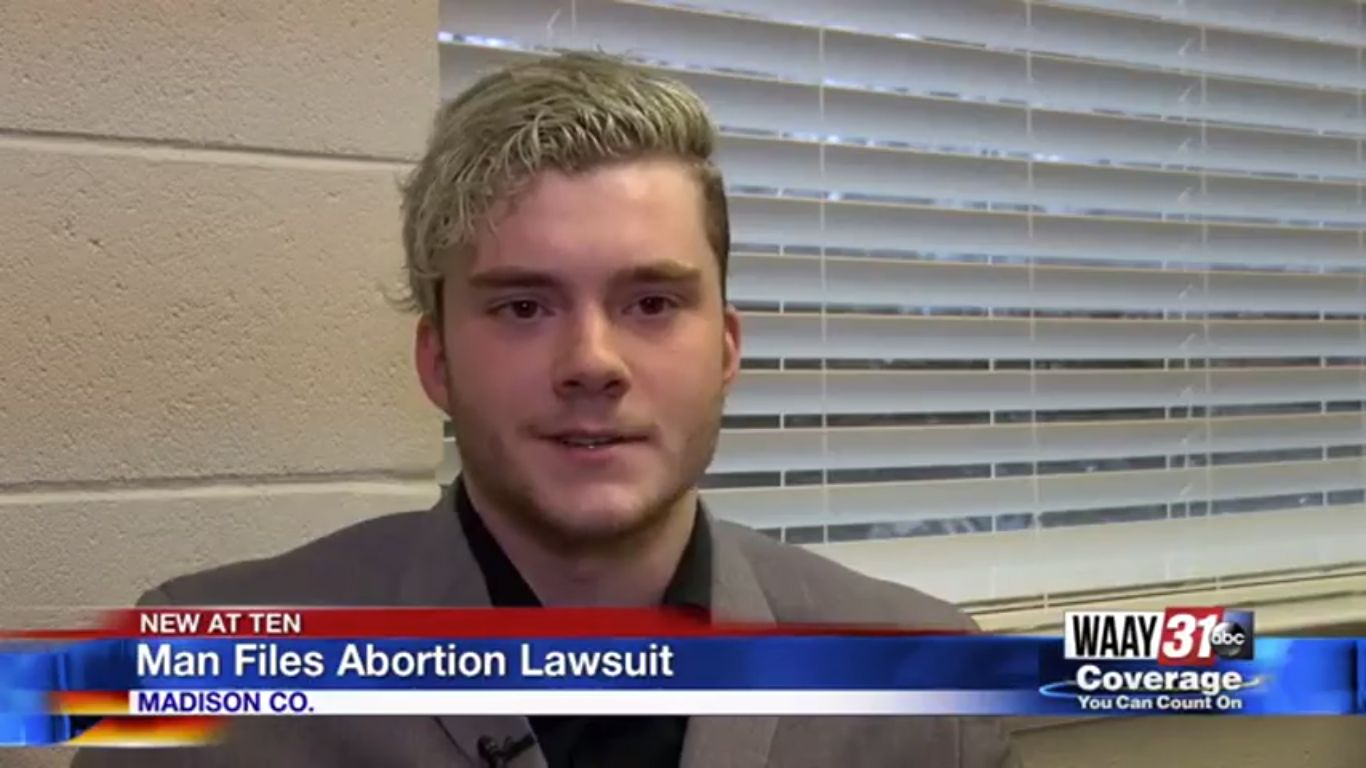 HUNTSVILLE, Ala. — A probate judge in Alabama has granted a teenager’s request to represent his aborted son or daughter in his lawsuit against a local abortion facility. The teen says that the child was killed despite his wishes that his girlfriend keep the baby.
HUNTSVILLE, Ala. — A probate judge in Alabama has granted a teenager’s request to represent his aborted son or daughter in his lawsuit against a local abortion facility. The teen says that the child was killed despite his wishes that his girlfriend keep the baby.
“I’m here for the men who actually want to have their baby,” Ryan Magers, 19 and the father of the child, told local television station WAAY. “I believe every child from conception is a baby and deserves to live.”
Magers says that in February 2017, his girlfriend, who was six weeks pregnant, obtained the abortion despite his pleadings. He is suing Alabama Women’s Center for Reproductive Alternatives in Huntsville in his own capacity as father, but in January, Magers also filed a petition that requested that he be permitted to represent the baby’s estate.
It recognized that the baby didn’t have a will or property that would otherwise be used to determine who has rights to the estate.
On Tuesday, Madison County probate Judge Frank Barger signed on to the petition, which will place the child, known only as “Baby Roe,” on the lawsuit as co-plaintiff.
The lawsuit now reads, “Comes now Plaintiff, Ryan Magers, in his individual capacity and as the next friend of, personal representative of the estate of, and/or father of his deceased child (hereinafter referred to as “Baby Roe”), and files this complaint against the above-specified defendants …”
“Baby Roe’s innocent life was taken by the profiteering of the Alabama Women’s Center and while no court will be able to bring Baby Roe back to life, we will seek the fullest extent of justice on behalf of Baby Roe and Baby Roe’s father,” Magers’ attorney, Brent Helms, said in a statement.
“The time is ripe for consistency in Alabama’s jurisprudence: either we fully acknowledge the personhood of the unborn or we cherry pick which innocents we protect and which ones we trash for profit,” he declared.
As previously reported, in 2016, the Alabama Supreme Court ruled that a woman’s wrongful death lawsuit against an OB/GYN accused of contributing to the death of her unborn child may proceed. It declared that unborn children are human beings whether or not at the point of viability and therefore are entitled to legal protection.
The court largely based its decision on an amendment in Alabama’s Homicide Act, which “changed the definition of a ‘person’ who could be a victim of homicide to include ‘an unborn child in utero at any stage of development, regardless of viability.”
“Unborn children, whether they have reached the ability to survive outside their mother’s womb or not, are human beings and thus persons entitled to the protections of the law—both civil and criminal,” also read a concurrence from Justice Thomas Parker. “It should be all the more intolerable in Alabama, where the express, emphatic public policy of our state is to uphold the value of unborn life.”
“Members of the judicial branch of Alabama should do all within their power to dutifully ensure that the laws of Alabama are applied equally to protect the most vulnerable members of our society, both born and unborn,” he said.
In addition to suing Alabama Women’s Center for Reproductive Alternatives and its employees, Magers is also challenging the pharmaceutical company that manufactured the pill his girlfriend ingested to kill the baby.
Become a Christian News Network Supporter...


